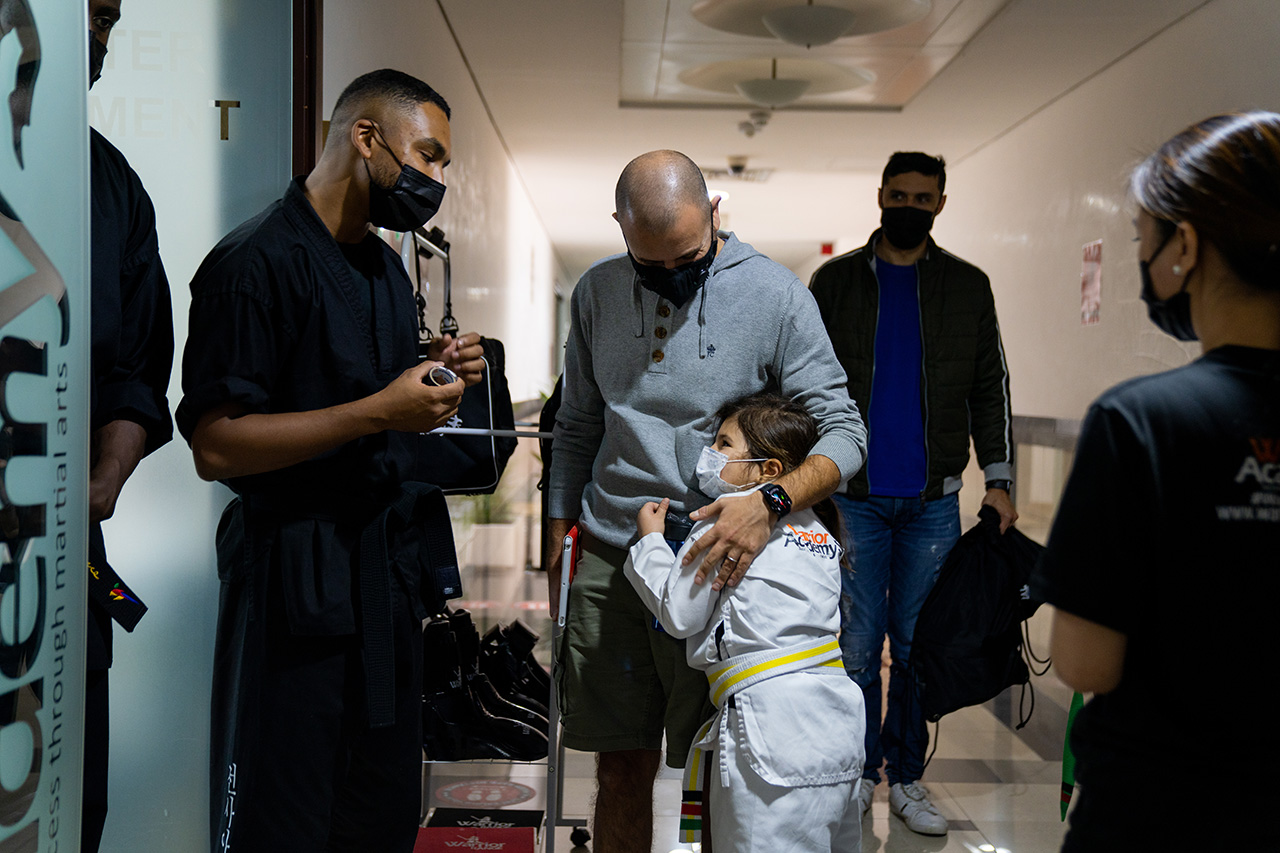What Is Confidence and Why Does It Matter?
Confidence is how much you believe in yourself. The more confident you are, the more likely you’ll feel ready to face life’s challenges, take up new opportunities and build new relationships.
Without confidence you're less likely to make friends and build supportive relationships, leaving you feeling isolated. Low confidence also means you’ll hold yourself back from trying new skills or taking on new adventures. Essentially, low confidence prevents you from reaching your full potential.
It’s incredibly important to have a good amount of self confidence so that you can enjoy life to the full, thrive from supportive relationships, and discover everything you’re capable of. Without confidence and the ability to try new things, we can become alone, anxious, bored and ultimately, very unhappy.
Nobody wants their child to have low confidence. So how can you recognise low confidence in children, and what are the things you can do to help strengthen it?
7 Signs Of Low Confidence In Children
Low confidence in young people is not always obvious or displayed in a way you might expect. Sometimes low confidence can come across as anger, impatience, deceit or controlling behaviour. You may be at a loss about why your young person is showing unusual emotions or acting out all of a sudden.
Children have a hard time recognising their feelings, let alone understanding them and able to express them clearly. If your child is acting unfavourably, it could well be due to a lack of self confidence.
Here are 7 signs of low confidence in children to look out for:
Aggression
Is your young person quick to lose their temper? Are they more angry than usual? Anger and aggression, particularly frequent outbursts that seem to flare up out of nowhere, could be a sign of low confidence.
Children can find it difficult to understand the emotion they’re feeling. Anger is an outward expression of inner conflict and upset. Anger is often easier to express than vulnerability or shame. A child who is struggling with their confidence; feeling frustration about not being good enough or anxiety about a difficult task or occassion, will often express it with anger.
It could be as simple as a challenging task to complete at school - the stress surrounding your child’s feeling of not being good enough, could come out as aggression towards you or other close friends or family. Always try to understand where your child’s emotions are coming from. It’s not easy to stay calm and patient whilst your child rages, but if you can, you’ll likely find a worried and upset child hidden beneath the drama.
Lying or Cheating
Has your child recently begun to lie more often? Or have they been caught cheating? These kinds of deceitful behaviour whilst worrying, are not usually long-term problems to be fraught over. Instead, take these kinds of behaviour as a signal to you that your child is finding things difficult to deal with.
Children who lie are often trying to impress. They may make up an elaborate story about a holiday you’ve never had, or exaggerate their achievements - these are always attempts to make themselves appear great. Why? Because they feel the truth isn’t good enough. They lack the confidence to be themselves and tell the complete truth about their lives.
The same is true for cheating. A child who cheats doesn’t have the confidence to rely on their own ability. They would rather act dishonestly than risk being a failure.
Try not to scold your child over this sort of lying or cheating. Attempt to understand where your child is coming from, why they have lied and address the root cause of their behaviour. Encourage them to be honest and open with you by remaining calm and understanding.
Controlling and Inflexible
Children who try to control everything or struggle to adapt to changes, are likely suffering with anxiety. The anxiety could be due to feeling like they can’t cope. Change can be difficult for anyone, but children who may not fully understand a situation or what is expected of them, may try to dominate by becoming obstinate or refusing to cooperate.
If you find yourself in a battle of wills with your child, take note that your child may be suffering with a lack of confidence, not only in their ability to handle the situation, but also uncertainty about what to expect from others.
Try to remain empathetic and compassionate towards your young person - no matter how difficult they become. Attempt to reassure them, alleviate any fears they may have, and provide them with as much information as possible about what to expect and what you expect of them. This can provide the stability they need when they’re feeling unsettled and inadequate.
Avoids and Quits
Is your child reluctant to try new things or do they quit soon after beginning? This could be because they lack the confidence to give it a go or see it through. They’re likely worried about their ability to take part, meet new people or meet others’ expectations.
Encourage your kids to try new things and support them when they feel like giving up. Tell them about your own challenges, and how you saw it through. Show them in your own life that you’re willing to do hard things and try new challenges. If they see you putting yourself forward even when you’re unsure, and witness your achievements from doing hard things, they’ll likely follow suit.
Self-Critical
Does your child frequently put themselves down? Are they self-critical, even in a jokey way? This is often a sign of low confidence. Your young person may find it difficult to receive a compliment or be quick to point out their flaws. This is a tactic often used to cover up low self-esteem, for fear that someone else might do it for them otherwise.
If your child seems to be developing a habit of self criticism, reframe their comment. Such as, “I’m so stupid” could be met with, “You’re not stupid, you’re learning, and we never stop learning.” These supportive comments can be enough to change your child’s train of thought, and derail a habit of self criticism.
Excuses and Blame
Does your child find it difficult to take responsibility for themselves? Are they likely to make excuses or blame others when things go wrong? They’re probably afraid to admit their failings because of how they’ll feel about themselves, and how others will view them.
It’s not easy for anyone to admit they’re wrong. Try to model it for your young people - admit your mistakes and apologise when you need to. Be ready to listen to your child when they make mistakes.
Try to understand their point of view and provide a non judgemental space for them to be vulnerable about their misgivings. They’re more likely to be able to see their weaknesses as well as their strengths, and feel more confident about themselves as a whole person, rather than lack confidence over mishaps. They’ll be more able to look at themselves honestly and more willing to improve upon themselves.
Lack Friendships
Does your child struggle to make or maintain friendships? They could be anxious about approaching new people due to a lack of self confidence. They may think no-one wants to talk to them or be their friend, so not even try. They may not ask friends to spend time with them for fear of rejection because they think they’re not likeable.
It’s a good idea to practice social skills at home by encouraging healthy conversations and spending time with wider family and friends. This will help your child develop the skills that will give them confidence in social situations. Always encourage your child to speak their mind, provide space for their opinions and allow opportunities to witness friendly debate.
Your child will feel valuable and start to believe that others want to know what they have to say.
Help Your Child Be More Confident
Confidence is rarely shown in obvious ways. Boastful talk, power struggles and aggression may outwardly appear to come from a child who is sure of themselves. However, more often than not, it’s a sure sign they lack confidence.
Your children’s actions speak volumes. Their behaviour will always tell you what’s going on within. A confident child will take everything in their stride, be kind to others, say yes to new adventures, offer a hand of friendship and be capable of speaking honestly about their mistakes.
Be the example for your children, and always look out for the hidden reason behind their difficult behaviour. They’re trying to tell you they have unmet needs, and you have the important job to truly listen.
Want to learn more about how our community helps to rapidly grow confident children? Join our Facebook group here!


